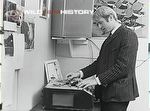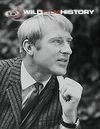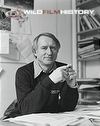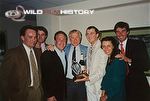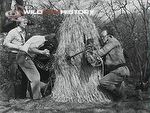John Sparks

One of the longest serving producers at the BBC Natural History Unit (NHU) John Sparks spent 35 years with the Corporation, running the Unit for several years. John has had a life-long passion for birds and after gaining his degree in zoology went on to study bird behaviour for his PhD. Taking a research position at London Zoo, he worked for renowned ethologist and author Desmond Morris. When Desmond heard the BBC Natural History Unit (NHU) needed help researching a show on mans’ relationship with animals, he immediately suggested John.
Impressing BBC staff with his natural flair for communicating complex ideas, John joined the Unit a few months later, beginning work as a radio producer in 1965. Three years later he moved into television collaborating on numerous series including, Animal Design (1972), Natural Break (1973) and The Discovery of Animal Behaviour (1982).
Helping to produce David Attenborough’s groundbreaking series, Life On Earth (1979), John took responsibility for the seventh and ninth episodes, the reptile segment, Victors of the Dry Land, and The Rise of the Mammals which focused mainly on marsupials. The latter included unique footage that John had set his heart on, for the first time ever, a kowari, a small marsupial, was recorded giving birth.
Appointed Head of the department in 1983, John commissioned the long-running environmental series Nature. During this period he fostered outside broadcasts such as Birdwatch, a trend that culminated in Reefwatch (1988), a groundbreaking set of underwater broadcasts, live from the Red Sea. The same year he was the BBC’s executive producer on the award-winning Nature of Australia series, collaborating with ABC to mark Australia’s Bicentennial.
In 1989, after six years as Head, he relinquished his post and spent the next three years travelling all over the former USSR, working on the epic series Realms of the Russian Bear. The award-winning series was broadcast in 1992 and the same year John was asked to take over the well-known strand, The Natural World, becoming its executive producer. By commissioning over 70 films, many from remote and exotic locations, John managed to reverse the declining fortunes of BBC2’s flagship strand, which is still running today.
This done, John left the BBC in 1996 and started working in a free-lance capacity. 1999 saw the BBC transmitting his six part series, Battle of the Sexes and his script and production talents have since been enlisted by a number of high profile companies, including both Oxford Scientific Films (OSF) and Partridge Films.


